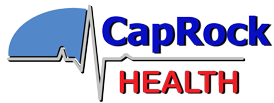Taking appropriate steps to stay healthy can feel complicated. Fortunately, there are a few simple concepts that produce enormous benefits. The most well-demonstrated ways to stay healthy are simply eating a good diet, getting adequate exercise, and ensuring the right amount of restful sleep. In addition to these things, one of the most beneficial actions is to maintain a healthy blood pressure level.
Understanding High Blood Pressure
High Blood Pressure (Hypertension) occurs when the force of blood within the arteries is too high. The vascular system, consisting of arteries and veins, can be roughly thought of as the body’s plumbing, a vast network of tiny pipes. Some of these are very fragile and can only tolerate a certain level of pressure.
When our blood pressure is too high, these tiny pipes can get damaged. Since every part of the body relies on these arteries and veins to deliver nutrients and oxygen, damage to these vessels can cause myriad symptoms and even disability or death. For this reason, it is crucial to identify and address high blood pressure as early as possible. Unfortunately, high blood pressure often has no symptoms and is only detected by regular screenings. It is one of the biggest “silent killers.”
Ideally, a blood pressure near 120/70 is the goal, but this may differ from person to person, and your goal level should be discussed with your doctor.
Common Symptoms of High Blood Pressure
While blood pressure is usually asymptomatic, certain symptoms can result from extremely high blood pressure and should prompt evaluation.
Headaches
Headaches are only rarely caused by high blood pressure. But new, frequent headaches, or headaches that are of sudden, severe onset, should always be evaluated. Occasionally, the cause of a new headache will be previously undiagnosed hypertension. While any type of headache can be associated with hypertension, they commonly are experienced as feeling pressure or throbbing in the head.
Vision Changes
As with headaches, visual changes are not common symptoms of elevated blood pressure, at least acutely. Visual damage from elevated blood pressure is usually the result of chronic, uncontrolled blood pressure. Again, this underscores the importance of regular BP screening to catch any problem long before consequences such as visual damage occur.
Shortness of Breath
Difficulty breathing or shortness of breath, even during routine activities, could signal high blood pressure. The strain on the heart caused by hypertension may result in reduced oxygen supply to the body, leading to breathlessness.
Chest Pain
The extra stress placed on the heart by severely elevated blood pressure can lead to symptoms such as chest pain. But even mildly elevated blood pressure, left untreated for long periods of time, can eventually lead to heart disease such as heart attacks or heart failure which can cause chest pain.
Poor circulation
In the early stages of high blood pressure, blood circulates without any problem. This is why it is usually asymptomatic. But, as the arteries build up damage, they do not distribute blood as effectively. This is usually first noticed in the feet and legs with pain during exercise but eventually progresses to numbness and coldness as the circulation becomes inadequate even at rest.
When to Seek Emergency Care
Chest Pain
Chest pain or discomfort is a serious symptom that demands immediate attention. It could indicate complications related to high blood pressure, such as a heart attack. If you experience chest pain, seek emergency medical care without delay.
Severe Headaches
While headaches are common, severe and persistent ones could be indicative of advanced hypertension or some other problem. Intense headaches may signify potential damage to blood vessels in the brain, necessitating urgent medical evaluation.
Shortness of breath
Severe elevations of blood pressure can lead to heart failure and an inability to circulate blood adequately. While most causes of shortness of breath will not be related to blood pressure, any change in breathing should be evaluated by a doctor right away.
Pain During Exercise
Unusual symptoms during exercise are almost always a cause for concern. With regard to high blood pressure, a person can experience chest pain or pain in the lower extremities during exercise that can be the product of acutely, or chronically, elevated BP’s.
Empowering Your Health
To return to where we started, a healthy diet, regular exercise, and adequate rest are generally the most important steps in remaining healthy, and part of why this work is because they help to prevent or reduce hypertension. But, even with these efforts, some of us will develop hypertension just based on our genetics. And most of us who do will be asymptomatic.
Since early detection and proactive management of hypertension are so crucial in ensuring a heart-healthy future, please get regular health check-ups, too. If you do not have time or resources to see a doctor, most pharmacies have blood pressure machines available and sell at-home blood pressure machines for a reasonable price.
Fortunately, if you have or develop high blood pressure, we have a plethora of very affordable treatment options available that are effective at preventing the negative consequences and usually have no noticeable side effects!
How CapRock Can Help
At CapRock, our team is expert at diagnosing and treating conditions related to high blood pressure and its consequences. We offer 24/7 emergency care in Bryan, Texas, and College Station, TX. Give us a call if you or a loved one needs immediate medical intervention.

